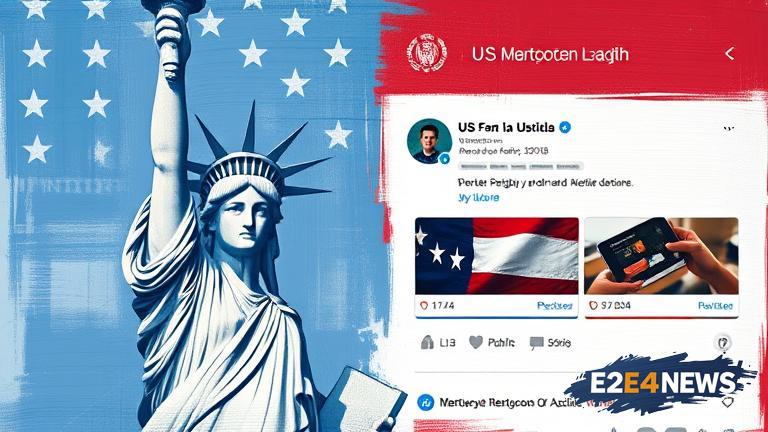The US Embassy has recently introduced a new requirement for visa applicants, which has raised concerns among many. As part of the application process, applicants are now being asked to make their social media accounts public. This new requirement is aimed at enhancing the screening process for visa applicants, allowing the embassy to scrutinize their online activities and connections. The move is seen as a way to identify potential security threats and to assess the applicant’s credibility. However, many have expressed concerns over the invasion of privacy and the potential risks associated with making personal information public. The new requirement applies to all visa applicants, including those applying for tourist, work, and student visas. Applicants will be required to provide their social media handles and make their accounts public, allowing the embassy to access their online activities. The embassy will be looking for any suspicious activity, such as ties to terrorist organizations or hate groups. The move has been criticized by many, who argue that it is an overreach of power and an invasion of privacy. Others have raised concerns over the potential for discrimination, as applicants may be judged based on their online activities rather than their qualifications or character. Despite the concerns, the US Embassy has defended the new requirement, stating that it is necessary to ensure national security. The embassy has also assured applicants that their personal information will be protected and that the screening process will be fair and unbiased. However, many remain skeptical, and the new requirement is likely to face legal challenges in the coming months. The introduction of this new requirement has also sparked a debate over the role of social media in the visa application process. Some argue that social media can provide valuable insights into an applicant’s character and intentions, while others see it as an unreliable and potentially misleading source of information. As the debate continues, one thing is clear: the new requirement will have significant implications for visa applicants and will likely change the way that the US Embassy approaches the application process. The move is also likely to be watched closely by other countries, which may consider introducing similar requirements in the future. In conclusion, the US Embassy’s decision to require visa applicants to make their social media accounts public is a significant development that raises important questions about privacy, security, and the role of social media in the visa application process.
